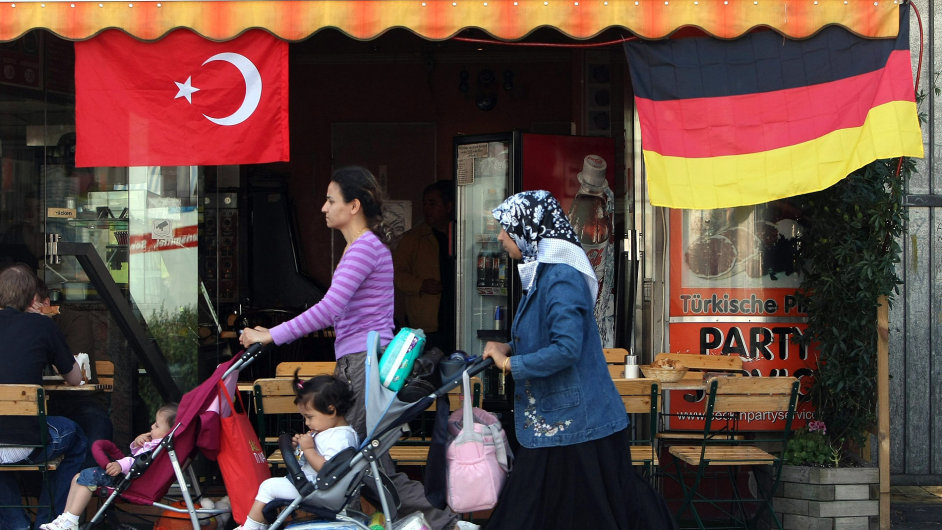Multiculturalism is dead. Multiculturalism is a failed concept. Multiculturalism causes secularization. Multiculturalism is dangerous. Multiculturalism is… But what actually is multiculturalism? Why even talk about it if it is a supposedly dead concept and what even lead to this suggestion? Can it be linked to the recent successes of extreme nationalist parties in France and Greece, even the rise of support for the BNP in Great Britain?
The London bombings of 2005, which were conducted by British-born Muslim citizens, or the riots of young African or Maghrebian-origin citizens in France led many to believe that there was something going wrong with the state’s approach towards immigrants.
Moreover, the results of the latest presidential elections in France, in which the far-right nationalist Marine Le Pen gained a record support of 18 per cent, or Greece, where the neo-Nazi party of the Rising Dawn won almost seven per cent of the vote in the 2012 parliamentary elections, might suggest that the public agrees with a rather more controlled approach towards immigrants. However, before one jumps to any conclusions, it is necessary to carefully analyse the situation.
The primary question that needs to be answered at first is what the concept actually entails. A quite accurate definition was given by Tariq Modood in which he states that “Multiculturalism is where the processes of integration are seen both way and as working differently for different groups” and that multiculturalism can be defined as the “challenging, the dismantling, the remaking of public identities in order to achieve an equality of citizenship that is neither merely individualistic nor premised on assimilation”.
What one can take from these definitions is that multiculturalism is a concept in which ethnic, cultural and religious minorities are not to be assimilated to the majority, but their culture, religion, practices and language are respected. It is a system in which the social realities of different groups are recognized.
Immigrants and minorities must of course respect the common law of their new homeland, however there might exist exemptions for some of them, such as the exclusion of Turbanned Sikhs from the necessity of wearing helmets on motorcycles or construction sites in Great Britain. In a state that has adopted the multiculturalist approach, religious symbols are tolerated in public places, there is usually state funding for ethnic activities or festivals, etc.
France is in no way a multiculturalist country
What is quite clear from the preceding paragraph is that France is in no way a multiculturalist country. By its ban on burqas in public places like schools and courtrooms, and its even more recent ban on them in the streets, it has only pushed forth its model of laicité and an overall assimilation of immigrants.
Germany is also not the best example of a multiculturalist approach. It has adopted what is called a differential system, in which immigrants are granted almost the same rights as citizens, but citizenship itself is very difficult to obtain, therefore, they never become fully integrated. Therefore, Merkel has been denoting a concept that her own country has not fully adopted.
Greece, again, is quite far from being multicultural, with it not having any public funding of ethnic events, no exemptions from clothes codes, and very limited affirmative action when it comes to discriminated immigrant groups. Therefore, multiculturalist policies cannot be directly linked to the rise of nationalist parties on France or in Greece. However, it can be argued that the rise of these parties cannot even be linked to a rising hostility towards immigrants at all.
Firstly, coming to the case of France, it is quite arguable whether the growing support of Marine Le Pen was linked to a growing support of anti-immigration policies. Ms Le Pen actually shifted away from her father’s strong anti-immigrant rhetoric to a focus on globalization, political elitism and economic protectionism.
Even the voters of Marine Le Pen were very atypical for a far-right party, they mostly constituted of working class citizens, who were attracted by her anti-elitist rhetoric and suggestions of drastically changing the course of the economic system, drawing away from the Euro, blaming Brussels for the crisis in Greece, Italy and Spain. Anti-immigration policies were rather a part of Nicolas Sarkozy’s pre-election speeches, and as is widely known, Mr. Sarkozy did not end up standing victorious in this presidential race.
Britain is a self-proclaimed multicultural state
The elections in Greece sparked much debate on the state of European politics. The fact that the radical right party Golden Dawn won seven per cent in the elections and entered the Greek parliament for the first time in its history led many to think that there is a growing nationalist feel present and that perhaps the public thinks it is time to move away from multiculturalism to a more radical approach towards handling immigration.
However, this might not be the correct interpretation of the developments. What many are overlooking is that it was rather an overall trend of voting for radical parties than a move towards the nationalists. In fact, the radical left, Syriza, jumped to second place. This is understandable, considering the economic earthquake that Greece has been going through for the past year, with Greeks blaming the ruling parties for the state of the country and therefore turning towards more radical solutions. Moreover, with recent turmoil in Greek politics and within the Golden Dawn party members being tied to the crime scene, future developments are extremely uncertain.
However, looking at the support of the BNP in Britain, a self-proclaimed multicultural state, we see that this has recently also been on the rise. It has been not so visible as in the cases of Greece and France, because they have not gained any seats in the Parliament, but with gaining 1.9 per cent in the 2010 elections, the party is not negligible.
A paper published at the University of Oxford by Dr Michael Biggs and Steve Knauss in 2007 has shown that support for the BNP is higher in areas in which the segregation of whites and non-whites is high as well as in areas in which there are fewer immigrants. Cameron clearly was not addressing an imaginary problem. Segregation of ethnic minorities is present in Britain, and ignoring such a fact could lead to dangerous consequences.
This would be denouncing multiculturalism, which clearly is not the way to go. Here one can draw on Tariq Modood’s defence of multiculturalism, in which he states that it is not a dead concept, but it should be re-considered from a perspective of having multiple identities, and a consistent British identity that different cultures can identify with.
Governmental support is needed to improve communication between the majority and ethnic minorities
This is surely an interesting concept, but it is also very vague. Clearly theory does no longer suffice in the multiculturalism debate. There is a need for concrete governmental steps to be taken in order to make multiculturalism function, to re-visit it on a practical, not only a theoretical level. If governments were given more authority to address their issues when it comes to ethnic minorities, they could tackle problems more directly.
Governmental support and funding is also needed to improve communication between the majority population and ethnic minorities, and perhaps to develop innovations in how to approach the isolation of immigrants and the formation of ghettos. None of this will however be achieved if politicians stand by their convictions that “multiculturalism is a failed policy”.
It might seem as though a change of approach towards immigrants would not be harmful, really. However, the alternatives, mainly assimilation adopted in France, do not seem to be bringing any advantages. It has the same problems, maybe even more of them, than the British multicultural model, and it raises many questions to one’s identity and national conception.
For example, that of how people are to exist in a supposedly liberal society, which at the same time bans any religious expressions not only in public institutions but also in any kind of public place. The question of whether one can really be proud to live in a country which claims a monopoly on culture on its territory, when it asks immigrants to assimilate themselves to it and adopt it. Whether such an approach would not rob a merging Europe of its diversity and mutual respect for other cultures.
Therefore, before denoting multiculturalism as a failed concept, it is important to recognize that no concept is flawless, that it is the most respectful and tolerant approach towards immigrants that exists in European politics and that it might be useful to re-visit and reform it one last time before throwing it away.
Bottom line: What do you think about the concept of multiculturalism? What is the situation in the Czech Republic?
 Přidejte si Hospodářské noviny
mezi své oblíbené tituly
na Google zprávách.
Přidejte si Hospodářské noviny
mezi své oblíbené tituly
na Google zprávách.
Tento článek máteje zdarma. Když si předplatíte HN, budete moci číst všechny naše články nejen na vašem aktuálním připojení. Vaše předplatné brzy skončí. Předplaťte si HN a můžete i nadále číst všechny naše články. Nyní první 2 měsíce jen za 40 Kč.
- Veškerý obsah HN.cz
- Možnost kdykoliv zrušit
- Odemykejte obsah pro přátele
- Ukládejte si články na později
- Všechny články v audioverzi + playlist





